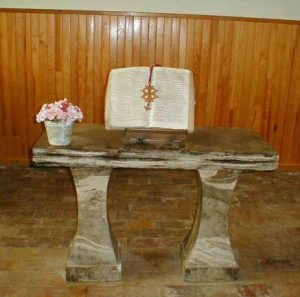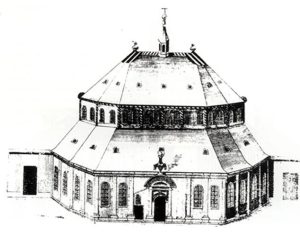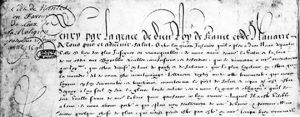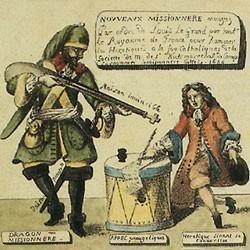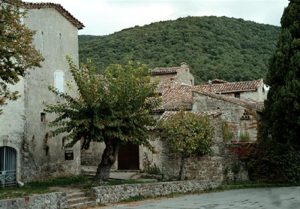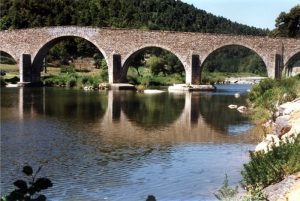Two temples were built successively
At the beginning of the Reformation, the first temple was built in the village on the Cèze stream. It was destroyed during the wars of religion. The second temple was built after the Edict of Nantes (1598). It was dismantled by the king’s dragoons upon the Revocation in 1685.
The grounds of the 1598 temple transformed into a garden
Given to a “Roman Catholic” family, the grounds of the temple were made into a garden. Amongst the ruins remained the communion table with a beautiful asphalt top which probably came from the neighbouring Avéjean mines. It remained in the Catholic family until the present temple was built and inaugurated in 1821.
The asphalt stone table returned to the 19th century temple
When the present temple was built, the Catholic owner of the table gave it back to the Consistory. It had been in his garden for over two centuries.

